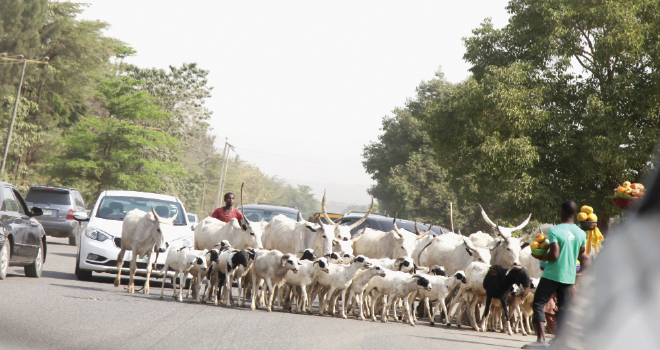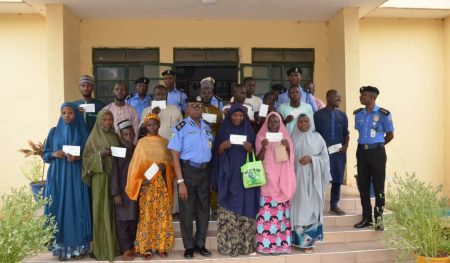The Triumph of Legal Redress: A Farmer’s Victory Against Herdsmen Encroachment in Ekiti State
In a landmark case that underscores the importance of legal redress in resolving farmer-herder conflicts, Mr. Dele Okunoye, the owner of MAO Organic Farms in Ekiti State, Nigeria, has secured a significant legal victory against herders who encroached upon and ravaged his farmland. This case highlights the devastating impact of such conflicts on agricultural livelihoods and the crucial role of government intervention in mediating and resolving these disputes.
Mr. Okunoye’s ordeal began in August 2024 when his 100-acre farm, a testament to his dedication and investment in agriculture, was repeatedly invaded by herds of cattle belonging to Alhaji Ibrahim Wakili and other associated herders. The destruction was extensive, wiping out valuable crops including rice, maize, cassava, and high-grade Malaysian oil palm, resulting in estimated losses exceeding N30 million (approximately $40,000 USD). This incident represented a substantial financial setback for Mr. Okunoye and underscored the vulnerability of farmers to the destructive consequences of uncontrolled grazing.
Driven by the need to protect his livelihood and seek justice, Mr. Okunoye took legal action against the herders, culminating in a court ruling that offered him a measure of respite and a glimmer of hope for the future. The Ekiti State Chief Magistrates’ Court, presided over by Magistrate Abayomi Adeosun, issued a restraining order against Alhaji Ibrahim Wakili and his associates, prohibiting them from further encroaching on MAO Organic Farms or any other farmland within Ekiti State. This legal intervention served as a powerful deterrent and affirmed the principle of property rights and the rule of law in addressing farmer-herder conflicts.
The court ruling not only provided legal protection for Mr. Okunoye’s farm but also elicited a positive response from the accused herder. Alhaji Wakili, in a conciliatory gesture, pledged to respect the court’s decision and refrain from trespassing on Mr. Okunoye’s property or any surrounding areas. This commitment to peaceful coexistence and adherence to the law signaled a potential turning point in the relationship between farmers and herders in the region.
Mr. Okunoye’s victory was not achieved in isolation. He acknowledged the vital support he received from the Ekiti State government, which played a crucial role in facilitating access to justice and ensuring a swift response to the crisis. He commended Governor Biodun Oyebanji and various government agencies, including the Ministry of Agriculture, the Security Adviser’s office, the Amotekun Corps, the Agro Marshal Command, and the Ekiti State Police Command, for their coordinated efforts in addressing the issue. This collaborative approach demonstrated the government’s commitment to protecting agricultural investments and promoting peaceful resolution of farmer-herder conflicts.
The Ekiti State government has been actively pursuing a multi-pronged strategy to mitigate farmer-herder clashes. This strategy includes promoting dialogue between the two groups, enforcing regulations related to grazing practices, and providing legal support to farmers affected by farm invasions. The government’s proactive stance in mediating disputes and ensuring accountability serves as a model for other regions grappling with similar challenges. The case of Mr. Okunoye exemplifies the effectiveness of legal recourse and government intervention in addressing these complex issues. His success story offers a beacon of hope for other farmers facing similar threats, encouraging them to seek legal redress and highlighting the potential for peaceful coexistence between farmers and herders through dialogue, respect for the law, and government support.














